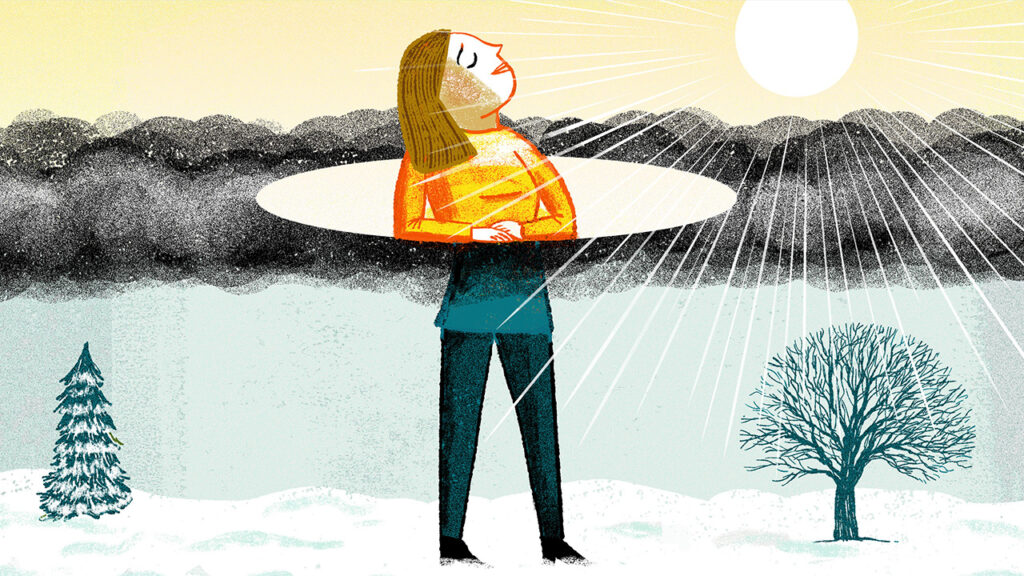
As the seasons change, so do our moods. For many people, the transition from summer to fall and winter can bring about a subtle but significant shift in their emotional well-being. This phenomenon is often referred to as seasonal depression, or Seasonal Affective Disorder (SAD).
Seasonal depression is a subtype of major depressive disorder that occurs at specific times of the year, most commonly during the fall and winter months. While it can affect people of all ages and backgrounds, it’s more prevalent in regions with pronounced seasonal changes and reduced daylight hours.
Common Symptoms:
- Mood Changes: Individuals with seasonal depression often experience persistent feelings of sadness, hopelessness, and irritability. They may also lose interest in activities they once enjoyed.
- Increased Fatigue: Fatigue and a lack of energy are hallmark symptoms of SAD. You may find yourself needing more sleep and struggling to get out of bed in the morning.
- Weight Gain: A noticeable increase in appetite, particularly for high-carbohydrate and sugary foods, can lead to weight gain during the winter months.
- Difficulty Concentrating: Many people with seasonal depression report difficulty concentrating, making decisions, and thinking clearly.
- Social Withdrawal: Isolation and a desire to avoid social interactions are common, as individuals with SAD often feel like they lack the energy to engage with others.
- Physical Symptoms: Some individuals may experience physical symptoms such as headaches, muscle aches, and stomach problems.
Causes:
The exact cause of seasonal depression is not fully understood, but several factors are believed to contribute:
- Biological Clock: The disruption of the body’s internal biological clock, or circadian rhythms, due to reduced exposure to natural sunlight can play a role in SAD.
- Neurotransmitters: Changes in neurotransmitter levels, particularly serotonin and melatonin, are thought to influence mood and sleep patterns.
- Genetics: Some individuals may be genetically predisposed to SAD.
- Reduced Sunlight: Decreased exposure to sunlight can disrupt the body’s production of vitamin D, which may have an impact on mood.
Coping Strategies:
- Light Therapy: Light therapy, or phototherapy, involves exposure to a bright light that mimics natural sunlight. This can help regulate the body’s internal clock and alleviate symptoms.
- Medication: In some cases, doctors may prescribe antidepressant medications to help manage symptoms.
- Lifestyle Changes: Engaging in regular physical activity, maintaining a balanced diet, and getting enough sleep can be essential in managing seasonal depression.
- Mindfulness and Therapy: Practices like mindfulness meditation and psychotherapy (such as cognitive-behavioral therapy) can help individuals develop coping strategies and address negative thought patterns.
- Social Support: Staying connected with friends and loved ones, even when it’s challenging, can provide emotional support during difficult times.
